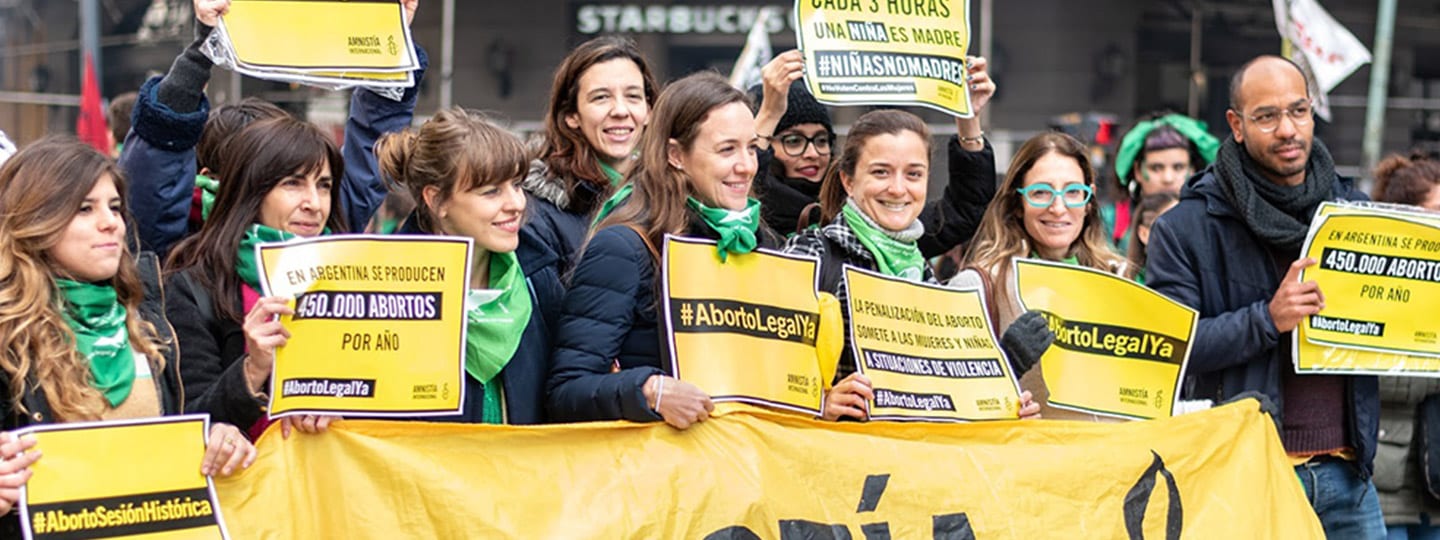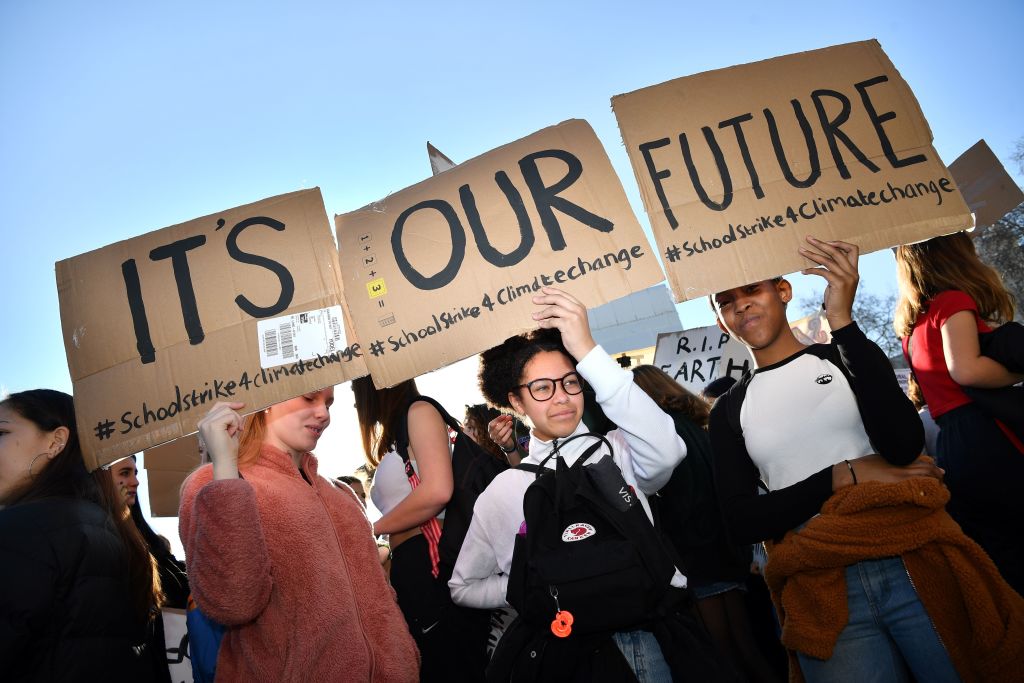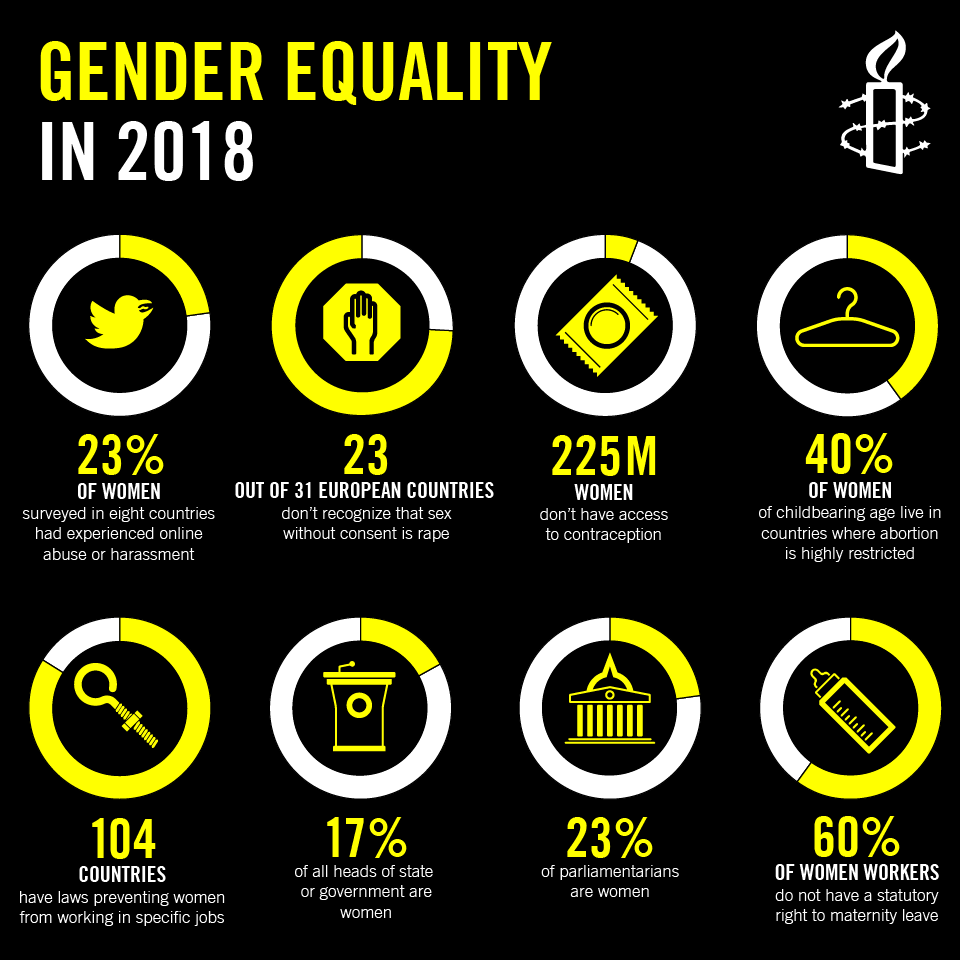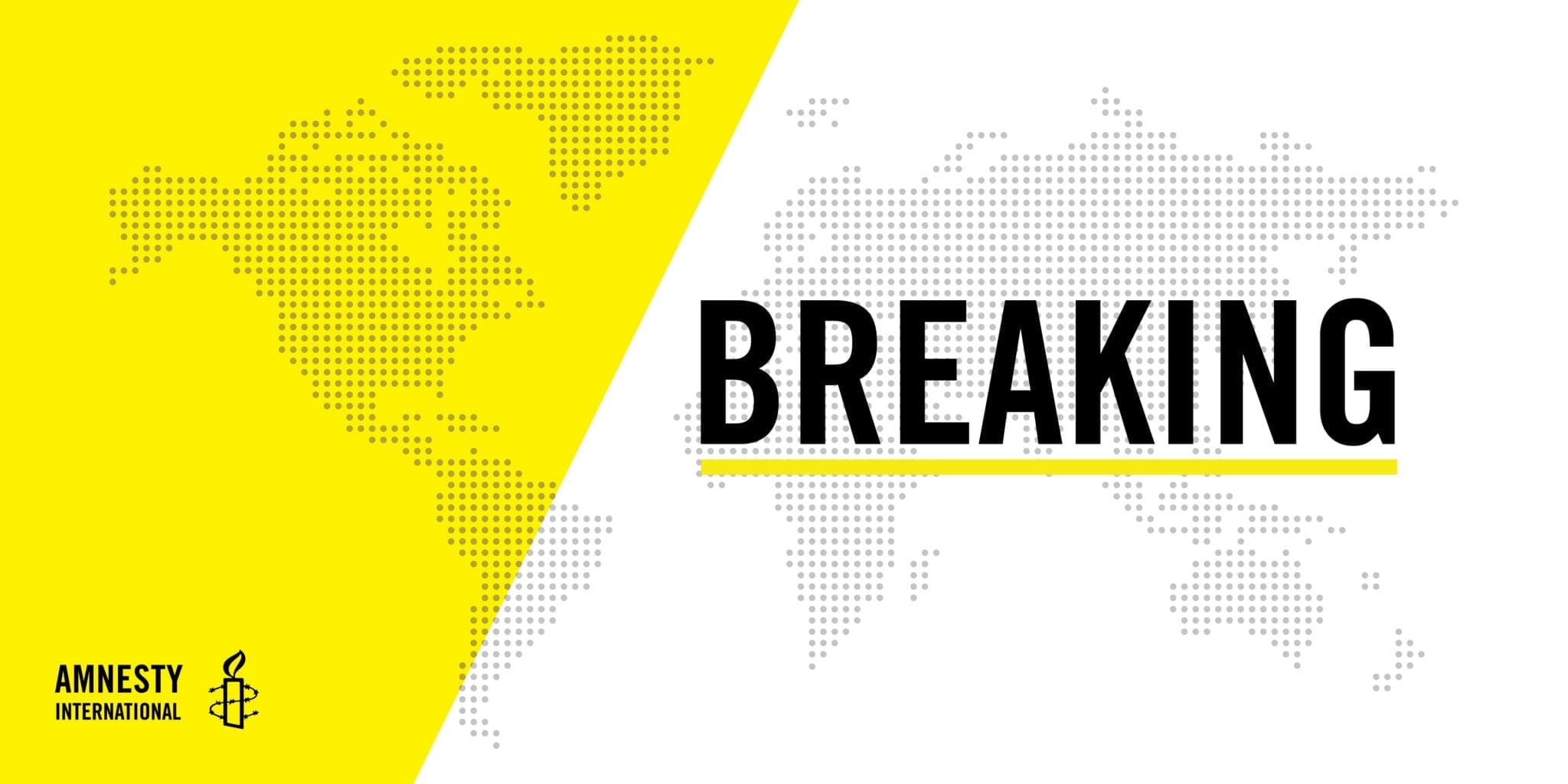The following information is based on the Amnesty International Report 2023/24. This report documents human rights concerns during 2023 in 155 countries, connecting issues at global and regional levels and looking forward to the implications for the future.
ARGENTINA 2023
Gender-based killings continued unabated in 2023 and impunity persisted. Access to abortion remained inconsistent in many parts of the country, despite its decriminalization. The abusive use of force with a racist bias was widespread within the security forces. Restriction and criminalization of protest prevailed. Measures on climate change fell short of targets required to curb global emissions.
Background
The country remained mired in an economic and social crisis. By June, 40.1% of the population was living in poverty and the unemployment rate was 6.2%. National elections took place in October and November, and the party La Libertad Avanza won with 55.65% of the vote.
In December, the president issued a presidential decree of necessity and urgency, repealing or modifying more than 70 laws, and introduced to Congress a bill on Bases and Starting Points for the Freedom of Argentinians, declaring a public emergency until 31 December 2025 and establishing regressive changes in healthcare, education, housing, freedom of expression and assembly, and gender, among other areas.
During the UPR, Argentina received 287 recommendations, including some relating to access to abortion, the Indigenous emergency land law and persistent institutional violence.
The UN Committee on Enforced Disappearances recommended the creation of a federal agency to coordinate the search for missing persons.
Congress had failed to appoint an ombudsperson since 2009. The Supreme Court, composed only of men, had had a vacancy since 2021.
Sexual and Reproductive Rights
Significant obstacles persisted in accessing abortion services, despite a 2020 law legalizing abortion within the first 14 weeks of pregnancy. According to the National Ministry of Health, from approval of the law up to October 2023, the public health sector had registered 245,015 abortions. No official data was available on the number of abortions in the private sector, in a context in which 57% of the population use private healthcare.
According to official data released in 2023, at least 1,394 children aged under 15 gave birth in 2021. Despite a decrease in pregnancies among children and adolescents aged between 10 and 19 between 2016 and 2021, more than 46,236 people in this age group gave birth during 2021.
Excessive use of force
In May, the CERD Committee highlighted the persistence of racial profiling in the abusive use of force by security forces, particularly against Indigenous Peoples, migrants, refugees and marginalized groups.
There were no significant advances in the investigation into the 2020 torture and death of Mauro Coronel in police detention in the province of Santiago del Estero. No one was charged over his death.2
In August, one of six police officers accused of killing 16-year-old Joaquín Paredes was sentenced to life imprisonment by a court in Cruz del Eje in the province of Córdoba. Joaquín and his friends had been celebrating a birthday in the street during Covid-19 isolation measures, when police shot them.
Right to Privacy
TikTok, which had more than 16.5 million users in the country in 2023, failed to guarantee children’s rights to privacy and health. The social media platform’s extraction of personal data was not deactivated and geo-localization was used despite a lack of authorization by the user.
Freedom of Expression and Assembly
Protests in the face of a reform to the constitution of Jujuy province adopted on 15 June were reportedly met with excessive and unlawful use of force.3 Joel Paredes suffered the loss of his right eye as a result of a rubber bullet fired by the Jujuy police. The reform restricted the right to protest and Indigenous Peoples’ exercise of consultation, participation and territorial ownership. Dozens of protesters were arbitrarily detained and criminalized, including Alberto Nallar, a human rights lawyer, charged with sedition and other offences. Sedition is a charge used unlawfully to criminalize dissent.
On 15 December, the Ministry of Security issued the “Protocol for the maintenance of public order in the event of roadblocks” (Resolution 943/2023). The protocol established that any demonstration involving street or road blockades constitutes a “crime in flagrante delicto” and enables the security forces to evict or disperse the protest. It also contains provisions to gather information and criminalize and stigmatize the leaders and participants of public demonstrations.
Impunity
Trials before ordinary civilian courts continued for crimes against humanity committed under the 1976-1983 military regime. Between 2006 and September 2023, 307 rulings were handed down, bringing the total number of convictions to 1,159 and acquittals to 178.
At the end of the year, a sentence by the Inter-American Court of Human Rights was still pending regarding the impunity over the bombing of the Argentine Israeli Mutual Association (AMIA) Jewish centre in 1994.
Right to a healthy environment
Although Argentina took measures to reduce its emissions in sectors such as transportation and construction, it focused its energy strategy on fossil fuels, which prevented the country from reaching its climate targets due to increased emissions.







